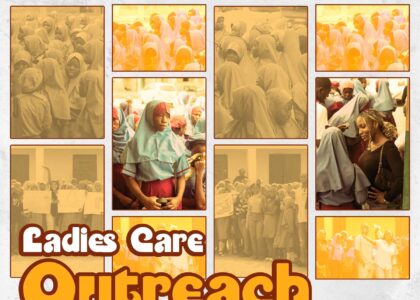Introduction:
In a society where education is deemed a pathway to progress, the barriers that hinder young students from accessing quality education can take many forms. One such distressing barrier is the lack of access to menstrual hygiene products, particularly pads, for female students. In this blog post, we shed light on the taboo surrounding menstruation and the devastating consequences of inadequate menstrual hygiene management on young girls in Nigeria. It is time to break the silence and address this critical issue, ensuring that all students have the means to pursue their education with dignity.
The Taboo of Menstruation:
In Nigeria, menstruation is often surrounded by silence and embarrassment, leaving young girls to navigate this natural process without the support and knowledge they deserve. The stigma associated with menstruation can result in shame and misinformation, perpetuating myths that further isolate young girls during their menstrual cycles. This atmosphere of secrecy fuels the lack of awareness about proper menstrual hygiene management and restricts access to essential menstrual products like pads.
The Impact on Education:
The absence of access to menstrual pads profoundly affects young girls’ education in Nigeria. When faced with inadequate menstrual hygiene management, many female students opt to miss school during their periods, leading to frequent absences and compromised educational opportunities. This interruption in their education can significantly impact academic performance, self-esteem, and overall educational outcomes.
Unaffordable Costs:
For many underprivileged students and their families, purchasing menstrual pads can be an unaffordable expense. As a result, young girls are forced to resort to using improvised, unhygienic materials during their periods, which can lead to health risks and infections. The lack of access to safe and affordable menstrual hygiene products perpetuates a cycle of inequality and hampers girls’ chances of staying in school and succeeding academically.
The Call for Menstrual Equity:
It is time to prioritize menstrual equity and advocate for comprehensive menstrual hygiene management in Nigeria’s educational institutions. Menstrual equity ensures that every student, regardless of their economic background, has access to the menstrual products they need to participate fully in their education.
Addressing the Issue:
- Menstrual Education: Breaking the taboo starts with education. Comprehensive menstrual education should be integrated into school curriculums, creating an open and supportive environment where students can learn about menstruation and proper hygiene practices without shame or stigma.
- Access to Menstrual Products: Schools must prioritize the provision of free or affordable menstrual pads and other hygiene products to all female students. Collaborations with NGOs and governmental agencies can help ensure a steady supply of menstrual products.
- Safe and Discreet Disposal Facilities: Adequate and hygienic disposal facilities for used menstrual products should be available in school premises, ensuring students’ comfort and privacy during their periods.
- Engaging Community Dialogue: Initiating community dialogues can help dispel myths and misconceptions about menstruation. Involving parents, teachers, and community leaders can foster a supportive ecosystem that addresses the needs of female students.
Conclusion:
Menstrual equity is a matter of dignity, education, and human rights. Providing access to menstrual pads for students is not just a policy change; it is a transformative step towards creating a more equitable society. By breaking the silence surrounding menstruation and advocating for menstrual equity, we can ensure that all students can pursue their education without fear or shame, empowering them to reach their full potential and contributing to a brighter future for Nigeria. It is time to stand together, dismantle the barriers, and embrace menstrual equity as an essential part of advancing education and the rights of all students.







